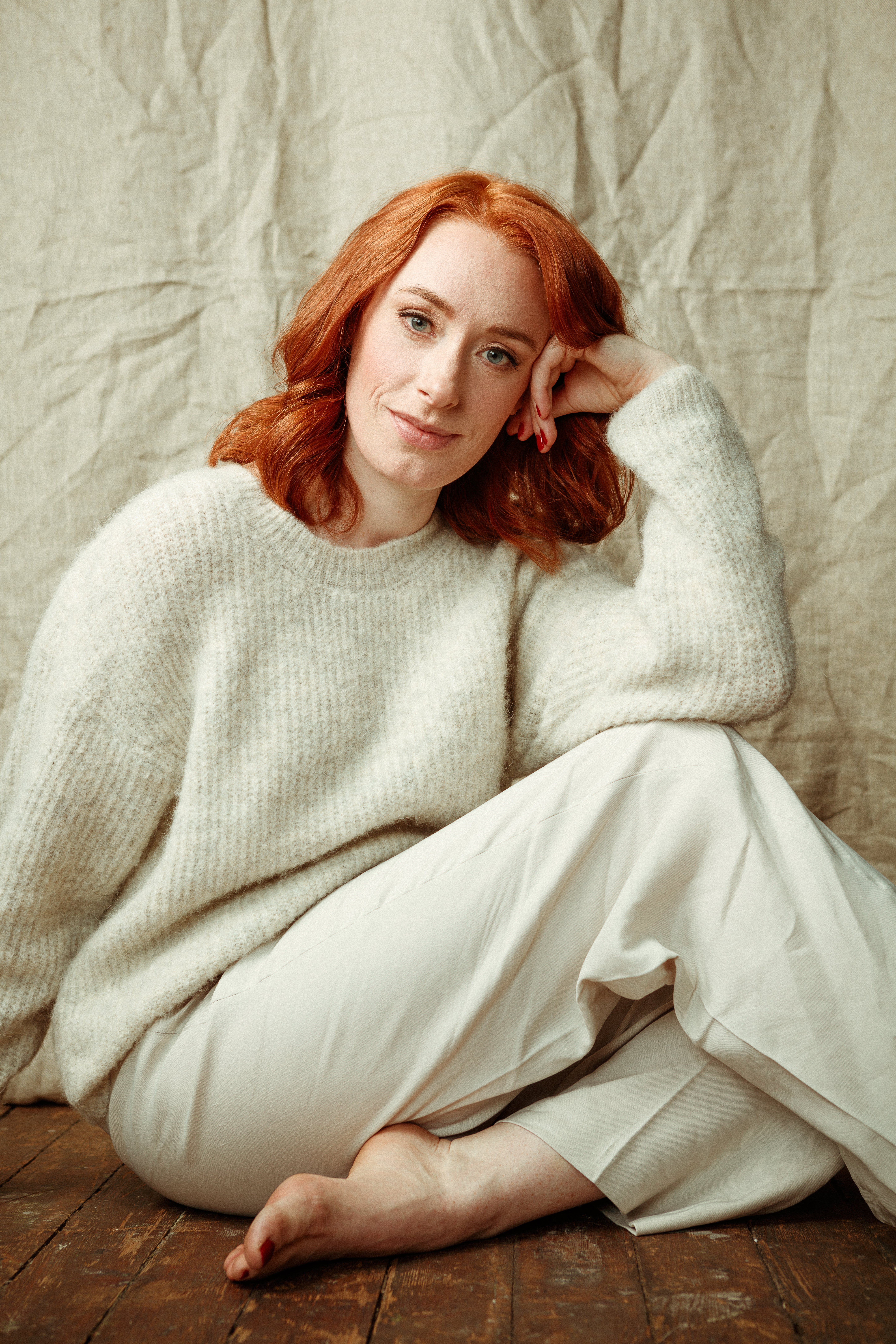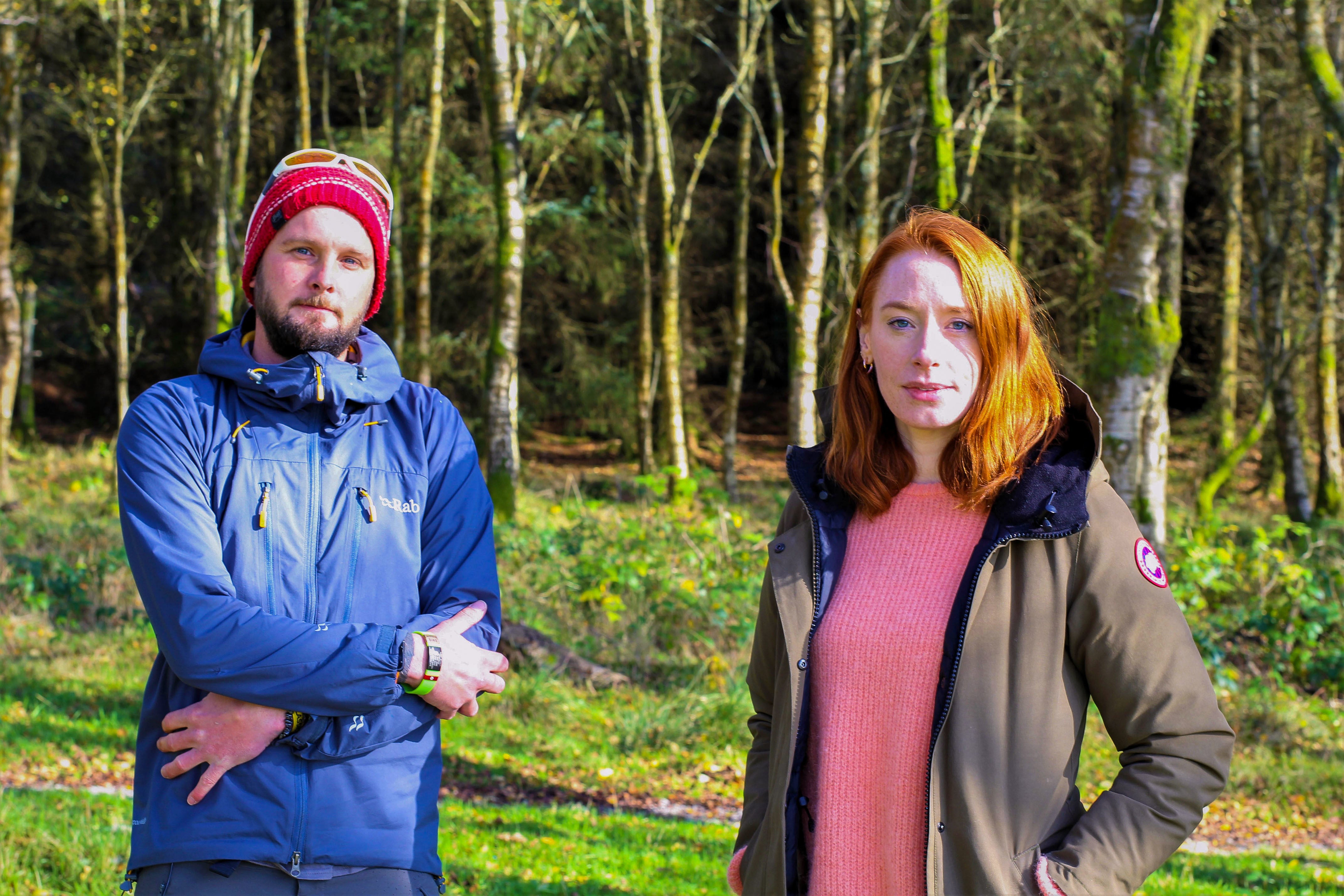Mathematics of Love author Hannah Fry: ‘When you have cancer, you’re just like, “Get it out of me, I’m terrified”’
The celebrity mathematician talks to Isobel Lewis about facing up to cervical cancer in her new Horizon documentary, the issues we’re too scared to discuss when it comes to cancer treatment and why patients need to weigh up their options carefully


Your support helps us to tell the story
From reproductive rights to climate change to Big Tech, The Independent is on the ground when the story is developing. Whether it's investigating the financials of Elon Musk's pro-Trump PAC or producing our latest documentary, 'The A Word', which shines a light on the American women fighting for reproductive rights, we know how important it is to parse out the facts from the messaging.
At such a critical moment in US history, we need reporters on the ground. Your donation allows us to keep sending journalists to speak to both sides of the story.
The Independent is trusted by Americans across the entire political spectrum. And unlike many other quality news outlets, we choose not to lock Americans out of our reporting and analysis with paywalls. We believe quality journalism should be available to everyone, paid for by those who can afford it.
Your support makes all the difference.For most people, the months after a cancer diagnosis are the last time on earth you’d want a camera crew with you. But mathematics professor Hannah Fry had first started keeping a diary, then filming clips on her phone, when she was first diagnosed in summer 2020. It was her way of coping with the “tangled mess” her mind had become. When a friend who owned his own TV production company suggested they make a documentary, it felt like a natural next step.
“When something like this happens, you get ripped in two,” Fry tells me. “There were days where I would be giving a lecture to my 120 master students, then quickly jumping on the bus to get to Lewisham Hospital to have my appointment, then having [director] Harriet Bird in my face being like, ‘So talk to me about your death. What would your children do if you died?’” She pauses. “That was pretty intense.”
The resulting film is the Horizon special Making Sense of Cancer. We see Fry at home with her husband and two young daughters (aged four and two), as well as hours after major surgery. She speaks to patients, doctors and researchers, trying to grapple with huge, complex ideas surrounding treatment and the impact it can have on the human body. It is no exaggeration to say this film has fundamentally altered the way I see the world and our treat-at-any-cost approach to medicine, I tell Fry. She agrees. “Making the documentary’s changed it for me too.”
With Fry having published books, given TED talks and presented podcasts about the way numbers influence the world around us, turning to the data felt like the only thing to do. At a time when she felt helpless, thinking about things logically gave her some semblance of control. She had put off having the cervical screening that would eventually show she had cervical cancer for half a year. What could have happened in those six months? And with no treatment being 100 per cent effective, what were the risk percentages involved?
In an attempt to remove the cancer from Fry’s body, the 38-year-old had a radical hysterectomy, in which the entire uterus and many surrounding areas are removed. It’s a gruelling process – the biopsy alone is done with a tool she describes to me as “an electrified ice cream scoop”. Here, I see Fry’s remarkable ability to find “dark humour” in some truly grim moments. She paints a picture for me of the room where she was told she had cancer and remembers fixating on a cheap-looking Ikea canvas of an orchid on the wall, imagining someone had picked that specific print to soften the blow.
Throughout Making Sense of Cancer, you can see the cogs whirring in Fry’s brain as she tries to remain logical about a topic that, naturally, is incredibly emotional. The moment she learns that the cancer is gone, she lets go and sobs with her husband in her parked car outside the hospital. But this is not the documentary’s end. A few months later, Fry is diagnosed with a condition called lymphedema, in which excess fluid builds up in her leg, a side effect that can be caused when the lymph nodes are damaged or removed during cancer surgery. Fry deals with it matter-of-factly, as ever, googling images of lymphedema patients and explaining that, should the condition get worse, it could lead to her having one engorged leg and problems standing.

But when one of the few specialists in the country confirms what she suspected, she cries just as hard as after that all-clear. “I don’t really know if there was a choice and now there’s this life-long sentence, as it were, of what could be a genuinely debilitating, life-changing condition,” she says. But, the doctor points out, there “might not have been options”. Fry, like many cancer patients, will simply never know.
It is estimated that one in two people will get some form of cancer in their lifetime, but Fry says there’s parts of this illness we’re too “terrified” to discuss – particularly regarding side effects. “Sometimes we don’t even give it a name – the big C, as though it’s Voldemort or something,” she says. “When you have cancer, you’re just like, ‘Get it out of me, I’m terrified.’ I think that actually, if you look at it with a slightly more level head, that isn’t always the best thing to do. [But] that’s quite counterintuitive.”
For now, Fry’s lymphedema is under control, largely due to the compression tights she wears all day, every day. “I think if you saw me, you wouldn’t think that there was anything wrong at all,” she says. But it’s made her more aware of the risks and what we, as individuals, judge to be worth it. “It’s only by having really honest conversations about the benefits of treatment, but also about the cost of treatment, that people will ever feel a bit more empowered to ask questions when it comes to their own experience,” she says.

Watch Apple TV+ free for 7 days
New subscribers only. £8.99/mo. after free trial. Plan auto-renews until cancelled

Watch Apple TV+ free for 7 days
New subscribers only. £8.99/mo. after free trial. Plan auto-renews until cancelled
Within the documentary, we meet parents of young children, such as Fry, who have made radically different choices. At one end of the spectrum, we have Nina, who lays out the medications she takes every single day in bags before her and struggles to inject herself. At the other, we have Rob, who at some point chose to say “enough” and live out his last year active and agile.

“There’s a subtlety to this, right, because I’m not saying that everyone should do what Rob did,” she explains. “What was right for Rob was right for him, what’s right for Nina is right for her. It’s sort of exactly the point, that you can’t just say, ‘This is what we should be doing’… what you think and what’s important to you should be at the foreground of every decision.”
There’s something about Rob’s story that affected Fry particularly, however. “You said watching the documentary has changed how you view the world,” she tells me. “Meeting Rob… I just think that I’m profoundly different after that encounter than I was before… It’s not that he was like, ‘Oh, yeah, totally fine with dying.’ He definitely wasn’t. But at the same time, fear wasn’t driving his decision.” If you can approach death without that “terrifying paralysing fear”, Fry says, it’s much easier to make decisions that are right for you. She laughs. “But that’s quite a big ‘if’, right?”
Fry is currently living without cancer, but is in a far better place should it ever return. “If I’m really honest with you, this documentary is the thing that brought me back to life,” she says. “The whole thing was just very, very therapeutic. I have thought about cancer and read about cancer and processed my own thoughts on cancer so much that actually, it’s really been very helpful… I’m just not as scared of death as I was before.”
‘Making Sense of Cancer with Hannah Fry’ airs tonight at 9pm on BBC Two



Join our commenting forum
Join thought-provoking conversations, follow other Independent readers and see their replies
Comments